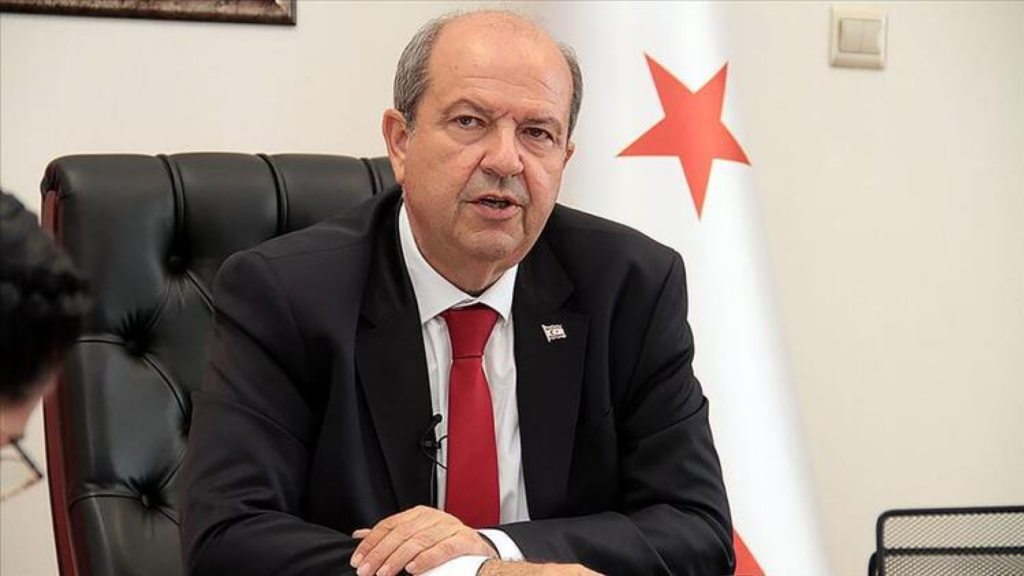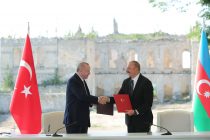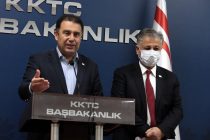Turkish Cypriot Prime Minister Ersin Tatar has promised to look into concerns raised by both British and Turkish nationals living in North Cyprus over tough new visa and immigration rules, just weeks before they are due to come into force.
Any “errors” in the regulations, which are due to take effect on 23 October, will be “corrected” Mr Tatar, leader of the National Unity Party (UBP), said during a recent TV interview.
He was responding to criticism from 14 organisations in the Turkish Republic of Northern Cyprus (TRNC) representing residents originally from Turkey and the opposition Rebirth Party (YDP), and also concerns raised by the British Residents Society (BRS).
The sweeping changes are being brought in by Interior Minister Ayşegül Baybars, an MP from the TRNC’s junior coalition partner, the People’s Party (HP), in a bid to crack down on illegal workers, better manage population pressures and to allay public anxiety over crimes committed by “tourists”.
Speaking to Diyalog TV on Friday, 4 October, Mr Tatar said: “You see all the headlines in the press about people coming and going [to and from the TRNC], so it’s important that we sort this out, everyone accepts this.
“However, there is some discomfort [about the new regulations]. I have met members of these [14] organisations and told my officials to look into their concerns and said there could be problems in the details, there could be big trouble in implementing [the rules].
“There may not be enough staff to administer [the new system]. There could be a lot of people [foreign nationals] over 60 living in the country.
“How does this regulation envisage recording over-60s? We need to look into this and evaluate the objections.
“My officials are speaking with the relevant organisations, with the Interior Ministry officials.
“If there really are errors, or something that the Interior Ministry has overlooked, that emerge before 23 October, these will be corrected.”
Referring to the health check requirements for foreign residents aged over 60, Mr Tatar said: “My mother is 80, would it be fair to subject her to regular health checks? So perhaps we could make an exemption [from health tests] for those who are already here, and have been here for years . . . but they would still be recorded for residency purposes.”
Under the TRNC’s tighter immigration regime tourists, including those from Turkey, the UK & EU countries, will not be allowed to stay for more than 90 days in the TRNC in a 180-day period
Mr Tatar said that British residents had also raised concerns with him about their status under the new system.
“They come and go, they are asking ‘what’s going to happen to us?’, ‘how will the new system work’,” he said.
“My wish is to record those who are living here, record the population, but not to end up with elderly people waiting in queues, standing around in corridors at the Health Ministry.”
The changes have been hailed by Mrs Baybars, who said that the TRNC’s existing immigration laws are based on legislation introduced under British colonial rule in 1952.

Under the tighter regime tourists, including those from Turkey, the UK and EU countries, will not be allowed to stay for more than 90 days in the TRNC in a 180-day period, although trips lasting less than 48 hours will be disregarded.
Visitors from EU countries and non-EU countries where there are TRNC embassies and representative offices will now have to have at least two months’ validity on their passports.
Citizens of other states will need to have at least six months remaining on their passports to be allowed in. Passports will be stamped with the purpose of the visit.
Those applying for work permits will need to apply with passports that have a least two years until they expire.
Immigration officers have also been given greater powers to quiz non-TRNC nationals who they believe should not allowed into the country
Foreign workers earning just the monthly minimum wage – currently 3,400 Turkish lira gross – will only be allowed to bring up to three family members with them and must provide evidence of suitable accommodation.
The details of any children will be recorded while all family members will have to be covered by a valid health insurance policy.
Immigration officers have also been given greater powers to quiz non-TRNC nationals who they believe should not allowed into the country.
They will be able to interrogate those rousing suspicion in a separate area for an initial period of up to four hours, questioning them over the reasons for their visit and how they intend to fund their stay.
Checks will also be made to ascertain the authenticity of travel documents, if a person has been banned previously from entering the TRNC or if they are on any international wanted list.
The new system will also affect British residents over the age of 60, who will now to have apply for residency permits and undergo health checks, although “ambiguities” remain as to how this will work in practice.
Previous administrations had adhered to a “gentlemen’s agreement” which allowed expat property owners over 60 to live in the TRNC without a permit.
Mrs Baybars said that an online system would be launched at the end of this month to make it easier to apply for residency permits. She has stressed the changes are not intended to “discriminate against any particular group”.
BRS chair Peter Wilkins has bemoaned the lack of a public communications campaign to make foreign residents aware of the new requirements
The minister has come under fire, however, from YDP MP Bertan Zaroğlu, who accused her of taking an “anti-Turkey” stance.
She has put the citizens of Turkey, the only country that recognises our country, in the same basket as citizens of countries that don’t recognise [the TRNC],” he said.
Meanwhile the chairman of the BRS, Peter Wilkins, has bemoaned the lack of a full public communications campaign to make foreign residents aware of the new requirements, following a meeting with Mrs Baybars.
“No such public campaign work has been done,” he was quoted as saying by Cyprus Today newspaper.
“We are trying to ascertain the facts, however we are still unsure how this new system is going to work, how applications are going to be made, whether health check requirements will be needed for every application, and when people can be eligible to apply for permanent residency – which was another issue we discussed with Mrs Baybars.”




